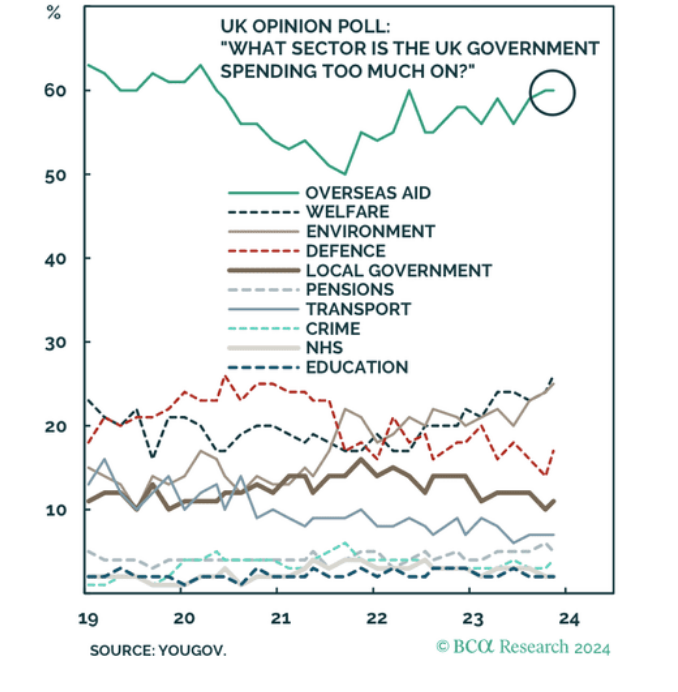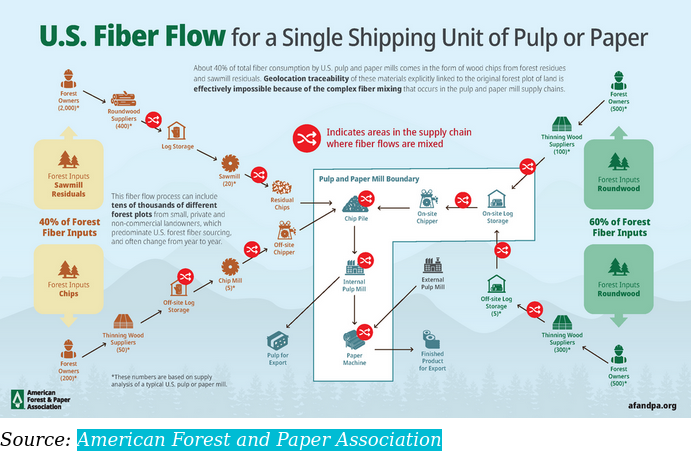July 10, 2024
UK Spending
-
£57 Billion of Green Funding is needed by 2030. However,
- Labour's budget for "green" spending: £7.3 billion for the National Wealth Fund (a combination of the UK's infrastructure bank and "business" bank)
- for ports, green hydrogen and gigafactories
- Gap after private investment: £35.9 billion to £56.9 billion between now and 2030
You will notice that the money spent by the public sector – a profit subsidy to attract private capital – puts private capital in a range from nothing to £20B.
"projects going unfunded because levels of investment risk appetite sit beyond the thresholds of commercial investors."
This means that the profit subsidy is too low. It was too low in the previous funding and it is still too low in the combined National Wealth Fund.
Their answer, to establish a wealth fund that subsidizes private capital in the hopes that capital invests "properly", comes out of a Tory taskforce:
The taskforce recommended that the wealth fund be allowed to use a broad range of financial instruments, including equity, concessional debt, guarantees and price assurance products to pull off its mission. It should explicitly be excluded from issuing pure grants, the panel said, since that would unlikely deliver the expected return on investment.
However, economists now believe that even giving away money (not as grants but as every other type of profit subsidy) will not be enough to drive any investment.
This is infrastructure investment under the guise of green investment. But the UK public is not on board as their understanding of what is wrong with the economy is shaped by pictures of small boats carrying refugees on the front pages of the reactionary press.

Overseas aid was £12.79 billion and accounts for 0.51% of Gross National Income. Most of that is going to Afghanistan and Ukraine. £3.7B is going to refugee support in donor countries in an effort to stop refugees from coming to the UK.
A better policy would be not to engage in imperialist war that craters economies.
The UK public thinks that the government is spending both too much on the environment and not enough on defence and social stability.
This leads to a very strange dilemma for any government in the UK. The very thing that would get them out of their mess is opposed by a large swath of the population, which thinks that the biggest problem is 10s of people arriving by floating raft.
The only real way out of the mess is through public funding for production. But that is not going to happen with the private sector magically footing the bill. That growth is also not going to happen with the small increases in spending from the UK national government.
Labour has staked its entire program on not having to increase taxes because it believes that giving away public land to private developers and subsidizing debt for private capital will grow the economy fast enough that it generates tax revenue all on its own.
This math is not only wrong, it is entirely untethered from reality.
Private capital will only invest if it is going to make profit over the long term. Short-term profit subsidies to bring down debt costs (in the face of higher interest rates from the central bank) is akin to tax cuts for corporations. They simply do not work.
At this rate, the "new supply side economics" is turning out to be the same as a neoliberal program in the UK. Without public procurement and production at rates that drive investment, it just means handing money to capital as it walks out the door.
A bolder vision is necessary.
Trees, forests, and paper goods
A couple of weeks ago we discussed the EU's anti-deforestation policy and its potential disruption of global trade in coffee and similar agricultural products.
The paper lobby is now very concerned about the impacts of the new regulations on the supply of forestry-related goods.
There is a lot of complaining about this regulation and the lack of thought that goes into adopting laws like this. The paper industry's complaint is that they like illegal deforestation because it keeps paper products cheaper than they should be.
Essentially, the American Forest and Paper Association has written to their government and to the EU, saying that adhering to the new regulations is impossible because it would mean their members would have to measure – and expose – their profiting from flagrantly illegal deforestation projects.
It turns out most of their supply is mixed with supply from sources they would rather not know anything about.

Boeing
Boeing shares were up 3% on news that it is guilty of fraud (a felony) and must pay a fine to US authorities.
Why were shares up? Because the fine is so low that it doesn't even dent Boeing's liquidity, which means shareholder capital is not impacted. The new fine is just 0.3% of it revenue last year.
In May, Dave Calhoun — a longtime Boeing board director who has been chief executive since 2020 — was awarded a pay package of $32.8mn. His predecessor, Dennis Muilenburg, who presided over the 737 Max rollout and the disastrous response to the crashes, walked away with a golden parachute of $62.2mn.
Not a bad payout for a bunch of CEOs that put profits first in such a way that it killed hundreds of people.
NATO influences
NATO is holding its conference and hired Instagram influencers to peddle its expanding goals of global war to the younger generation (so-called GenZ).
- 16 content creators from countries including the UK, Germany and France with followings on TikTok.
- Instagram and other social-media platforms to attend its summit in Washington on July 9-11.
- 10 influencers from the US will come at the invitation of the US Defense and State Departments.
The official NATO social media accounts feature an explainer video about the origins of the alliance, narrated by 25-year-old DC social-media fixture and an advocate for “vibrant masculinity,” Anthony Polcari.
At the Canadian embassy in Washington on Tuesday, 22-year-old Amanda Round sat in the media section listening to Prime Minister Justin Trudeau’s speech on the security implications of climate change. She listened carefully, considering how to convey the day’s events to her 161,700 TikTok followers.
She has seen disinformation and misinformation spread like wildfire, and views the invitation from NATO as an important opportunity to help her audience — mostly girls and young women aged 16 to 24 — understand NATO’s importance.
Yes, we wouldn't want misinformation to spread through official channels, would we?